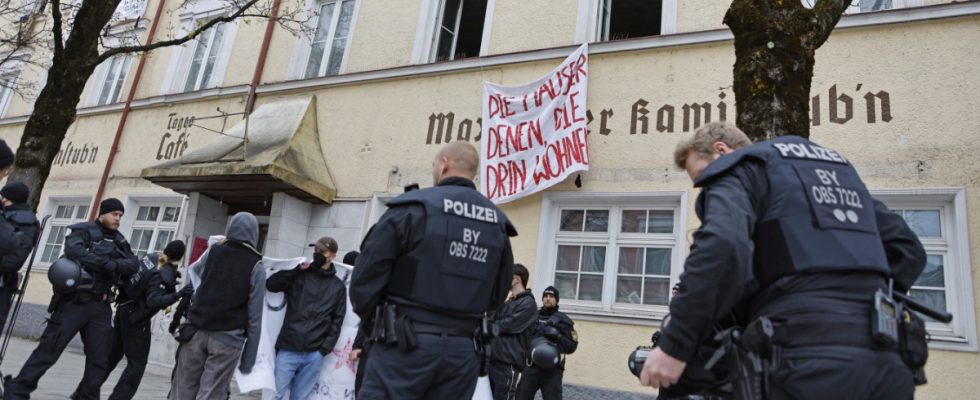Yes, they had already done what the public prosecutor accused them of. The three defendants, a 19-year-old and two young men of the same age, confessed. But actually they wanted to use the trial at the Rosenheim district court for some kind of prosecution themselves. With their confession, they also made a statement as to why they occupied that house in downtown Rosenheim last April and what political goals they were pursuing with the action.
The judge let them have it for a while, but in the end he preferred to continue the debate in writing. In addition to 50 hours of community service each, he gave each of the three defendants a five-page punishment assignment. The topics are quite challenging.
It won’t be enough with simple essays, which are quite common in the justice system for minor offenses committed by young people, and certainly not by writing “I’m not allowed to occupy a house” on the board twenty times. In this specific case, this type of task would hardly correspond to the educational aspects that the juvenile criminal law also wants to take into account. The three defendants were all of legal age at the time of the crime, one of them is still at school and two have now started studying. And they obviously want to argue too.
So the judge asks two of the defendants to write a popular legal essay on the topic “Freedom of expression, freedom of assembly, guarantee of property – why, according to the case law of the Federal Constitutional Court, our constitution does not allow squatting to achieve political goals.” The third party must approach the overarching problem in a comparative manner: “Creating affordable housing – what the party programs of the parties represented in the Bundestag provide for” is the topic for him.
It is unclear which standards the judge will use to evaluate the essays. He will hardly give grades. Instead, he offered the defendant the prospect of discussing the issue with them in more detail if they were successful – but then probably without the large audience in the courtroom. Because the three defendants are not lonely fighters. They also had a number of supporters in court who applauded them at the end of the hearing.
During the occupation last year, a large group of left-wing activists gathered for a demonstration in front of the former hotel under the motto “The houses for those who live in them.” The three defendants were obviously not interested in living space for themselves. The judiciary considers the fact that they broke into the building to be trespassing. At least in the house they didn’t disturb anyone’s peace at first, because the hotel had been empty for a while. So that they could stay inside a little longer, they strung a few steel cables on the stairs and on an upper floor – as obstacles for the police, which, according to the court, made them guilty of resisting law enforcement officers. It was also clear that the police would come to evict the building because the three squatters set off a few smoke bombs and hung banners out of the window.
With the verdict, the entire group has by no means given up on denouncing the long-standing vacancy of houses and the steadily increasing housing shortage in Rosenheim. After the hearing, around three dozen people gathered for another demonstration and then marched to another empty and supposedly newly occupied house. The police then only removed a banner without finding any other occupiers.

